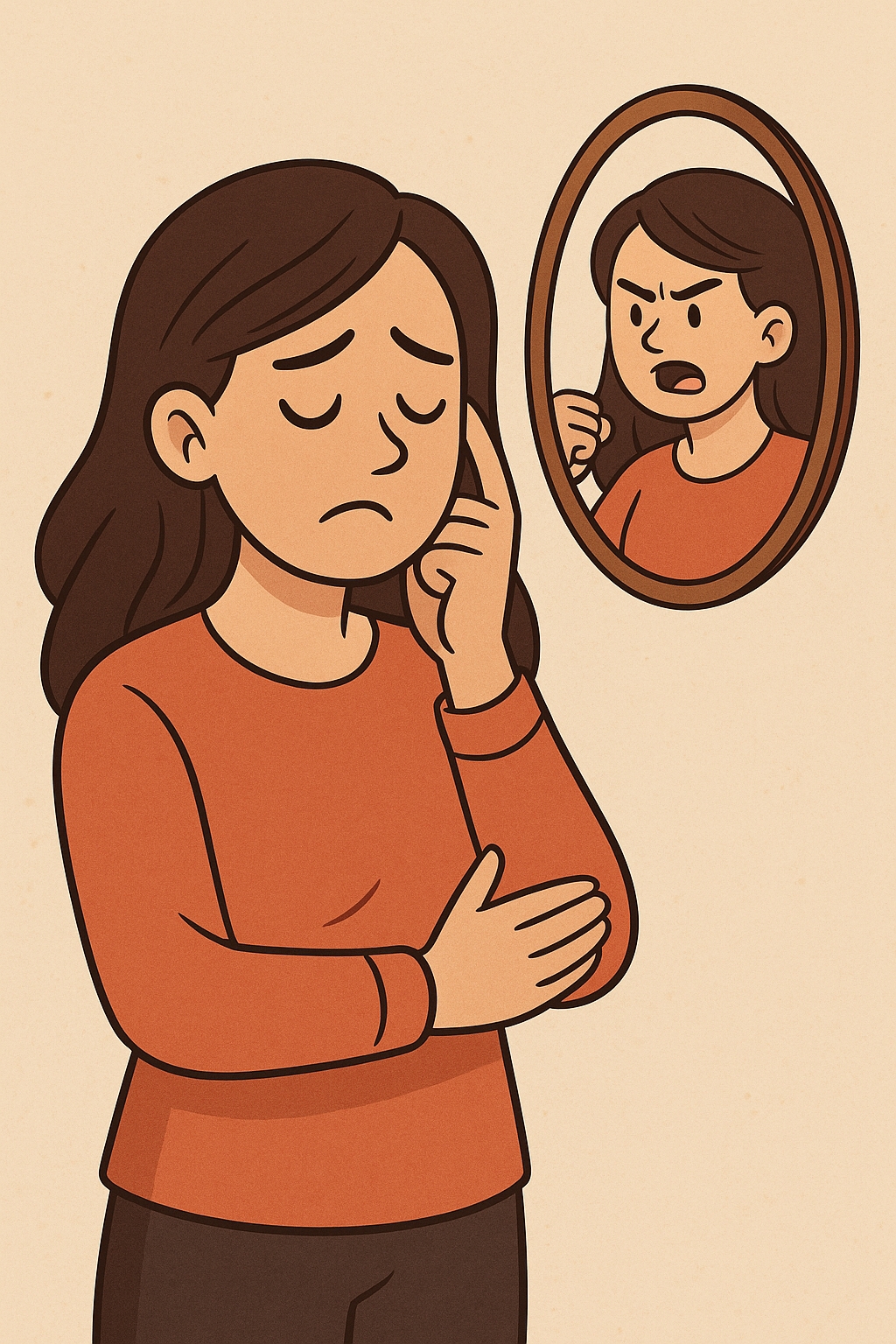BY AARDE WRITES for WEEKLY VOLCANO 11/28/25 |
Hey Aarde,
How does one stand up for themselves? I keep finding myself in situations where I feel left out, looked over, or straight-up used. I do not even know how I get there half the time. I will offer the most patient, selfless support I can give, and somehow I am still the person people set aside when it no longer benefits them. It confuses me, like how do they reason that behavior out? And why do I keep letting it happen? Sometimes I think about speaking up, but by the time I feel the sting of being taken advantage of, it feels too late. It feels silly or petty to bring it up afterward. I hate that the words get stuck in my throat. I want to be braver. I want to learn how to defend my boundaries before they are crossed, not after I am already hurting. Do you have any advice? I really want to change, but I do not know where to start.
Signed,
Accommodating Idiot
Hey Accommodating (I will not say it) Human,
The essence you create for yourself in private is the same essence you will bring into the world, and it becomes a roadmap for how others will treat you. Your sign-off name highlights the most critical change you can make immediately. You must change the way you speak to yourself. Imagine for a moment that you overheard a child, your child or any child, calling themselves an idiot. What is your immediate reaction? I would bet that you would say, “Oh no, honey, do not talk to yourself that way,” and then you would offer up reasons why they are not, in fact, an idiot. Now imagine yourself as that child.
Somewhere along the line, someone may have praised you for being an “easy” child, not making a ruckus, or made it unsafe to speak up for yourself. Your nervous system may recognize patterns where conflict causes tension in relationships and where harmony means safety. Your nervous system created behaviors to maintain this harmony as a survival tool. Now that you are an adult and require better relational reciprocity, those survival patterns no longer serve you, and your gut knows it.
You are most likely a relationship-driven, high-empathy, service-oriented person. It is easy to fall into the role of ensuring others’ comfort over your own. I want you to go to a mirror, somewhere private, look deeply into the windows of your own soul, and say out loud, “I am worthy of recognition” and “I am brave enough to stand up for myself.” Say that five times every morning and five times every night for an entire week. This is my take-two-pills-and-call-me-in-the-morning prescription.
Typically, people are not walking around looking to take advantage of others. They test where your boundaries are and which patterns you allow. Once they know how amenable you are, they might unconsciously take advantage of your accommodating nature. Sadly, some do so consciously. You cannot control others, but you can set standards for how you want to be treated and allow those who are unwilling to meet those standards to see themselves out of your life. As far as recognizing when you are approaching a situation that could result in feeling taken advantage of, heed these hints:
- A tug in the pit of your stomach
- A sense of guilt or fear of disappointment for even thinking the word “No”
- Feeling responsible for the other person’s comfort or needs as your responsibility
- A quiet inner voice that admits, “This does not feel right”
- And most crucially, a loud inner voice that says, “Do not make a big deal out of it. It is fine”
As soon as you notice any of these, it is time to remind yourself of your worth and where you draw the line with your time, energy, finances, and values. You will need to accept that you deserve to be comfortable and to feel respected for your boundaries and efforts within a relationship, that your contributions are enough, and that you are enough. People will love you even if you say no, and the ones who do not are not good for you anyway.
The next time you sense you are entering the realm of overgiving and resentment, I recommend pausing. We do not operate in a vacuum, and every human has a different processing rate. It is entirely reasonable to say, “Something is not making sense to me. Can we pause and clarify?” Sometimes it all boils down to a simple misunderstanding. There is no need to fret away your weekend over something that can be handled within minutes.
Try out some preselected quips to give yourself a framework for communicating. They help you show up for the other person while still honoring yourself. You may rely on short, clear responses that present you as kind but fair. Practice a few of these out loud: “Unfortunately, I am not available to help,” “I am not able to take on that specific task right now,” or “That does not work for me, but I hope you can get it figured out.”
When a situation has concluded and you are feeling the repercussions, try saying something like, “I would like to get some clarity on how this situation worked out so that I can better advocate for myself in the future.” This statement allows you to acknowledge the situation, express disapproval lightly, and show that you plan to prevent it from happening again.
If all of this sounds too scary to start, break it down into micro-attempts to build your bravery. Try saying, “I would rather have that seat, do you mind?” or “I would like to pick the movie tonight. You can pick dinner.” These requests are so simple that most people overlook them as challenges, but for someone who has always trained themselves to keep the peace, they can be monumental.
You will disappoint people sometimes, and that is okay. Guilt often covers up a deeper feeling of fear, the fear of being judged as difficult, and ultimately, the fear that the relationship will end and you will lose out on being loved. Keep in mind that the fear of conflict is often worse than the conflict itself. You may find that most people are more than happy to accommodate your comforts just as much as you accommodate theirs. Start small and carve out new neural pathways toward a strong sense of internal worth. Your voice and needs matter, and you should never have to abandon yourself to keep the peace. You are already on your way to change by recognizing a negative pattern in your life. Keep up the great work.
Do you have a question for Ask Aarde? Email it to jdaarde@gmail.com






